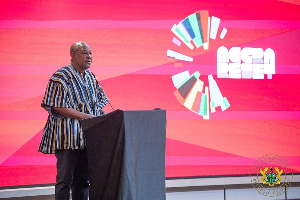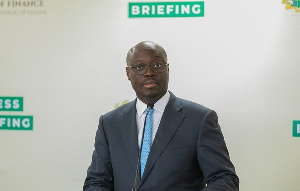Connivance, incompetency, corruption & negligence causes of fake products into ghana-VODEC
The diverse and complex nature of issues and challenges related to substandard falsely counterfeit products, a wide range of interventions are needed to effectively address them as our research has proven that connivance, incompetency, corruption and negligence are the causes. Inadequate number of staff, low staff morale and salaries also causes the problem.
Voice of Developing Communities (VODEC), wants to state that faking is primarily motivated by the potentially huge profits that can be made and is perpetrated by criminals who compromise people for illegal profits. The illegal production, smuggling and use of falsified products are real public problems and constitute financial losses for individuals and communities. Counterfeiters smuggle illegal goods and products through illicit channels or through lawful but poorly regulated supply systems.
Ghanaians should reaffirm their commitment to the fight against counterfeit products and engage in updating, developing, implementation and monitoring of national policies. We should establish adequate legal mandate, independence and institutional capacity to ensure and strictly enforce compliance of products with standards of quality, safety and efficacy; and to effectively control the manufacture, export, import and distribution of substandard/spurious/falsely labelled/falsified/counterfeit products.
In order to address the problem of sufficient training and availability of qualified staff, we should develop and implement a sustainable human resource strategy for the sector that ensures adequate human resource capacity including specialized training and retention of regulatory personnel. Continuing education and training programmes should be constituted into training curricula to enhance the knowledge and skills of personnel to enable them to prevent, recognize and appropriately deal with cases of substandard/spurious/falsely labelled/falsified/counterfeit products into Ghana.
Voice of Developing Communities (VODEC), wants to suggest that Ghana should put in place reliable supply systems and the requisite financial resources to ensure the availability of quality and affordable essential products in public facilities. Comprehensive quality assurance systems for procurement and distribution should be strengthened for the public, private and other providers. Necessary measures to ensure access to affordable products that meet quality and safety standards should be incorporated and given due emphasis in national policies and strategic plans.
Government authorities should monitor and regulate the prices of products to ensure their availability and affordability and establish effective systems to carry out specific studies and routine market surveillance to quantify the magnitude of the problem and to inform the development and implementation of appropriate policies and regulations.
Information, education and communication strategies to increase awareness of policy makers and the general public about the dangers of using substandard/spurious/falsely labelled/falsified/counterfeit products. The strategy should involve all activities aimed at fighting illegal production, distribution and use of these products.
Effective national, regional and interregional cooperation and collaboration mechanisms including reinforcing regulatory networks and exchange of information among general public , law enforcement, professional associations, NGOs and other relevant authorities to improve prevention, detection, investigation and prosecution of causes related to substandard/spurious/falsely labelled/falsified/counterfeit products.
We should further develop tools and guidelines enabling implementation policies and strategies to continue to assess and strengthen the quality, efficacy and safety of products and also mobilize more resources for developing human resource capacity the conduct and dissemination of operational research on substandard/spurious/falsely labelled/falsified/counterfeit products.
Ghana’s weak or no regulatory systems are fertile grounds for production and circulation of substandard counterfeit products. Over the last ten years, 26 national regulatory systems were assessed to identify gaps and were provided with need-based technical support. Apart from individual national regulatory authority assessments conferences were organized to exchange experiences, identify gaps and priority areas, and discuss the challenges of regulating markets including combating the manufacture, distribution, sale and use of substandard counterfeit products in the Ghana.
General News of Saturday, 19 October 2013
Source: VODEC












